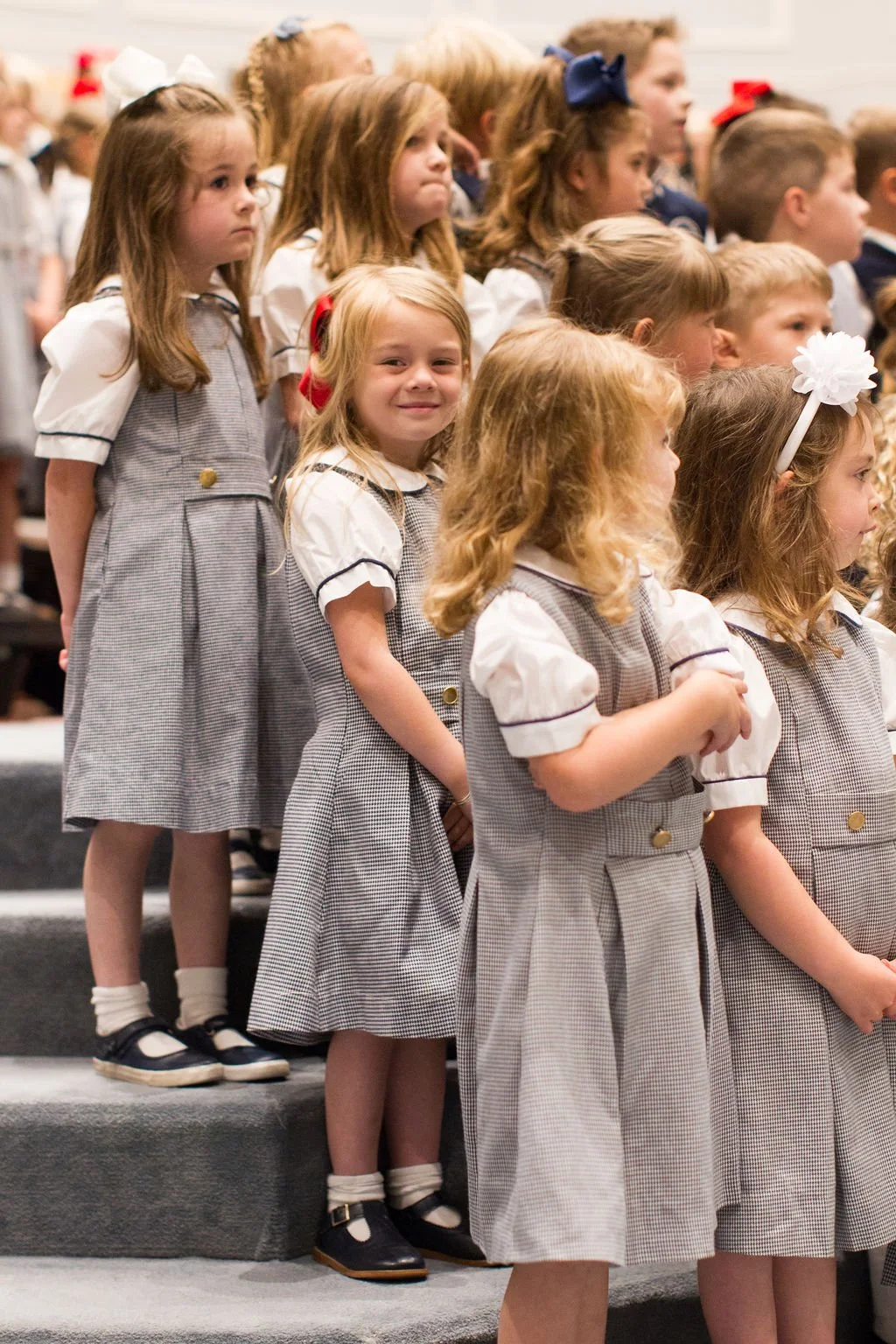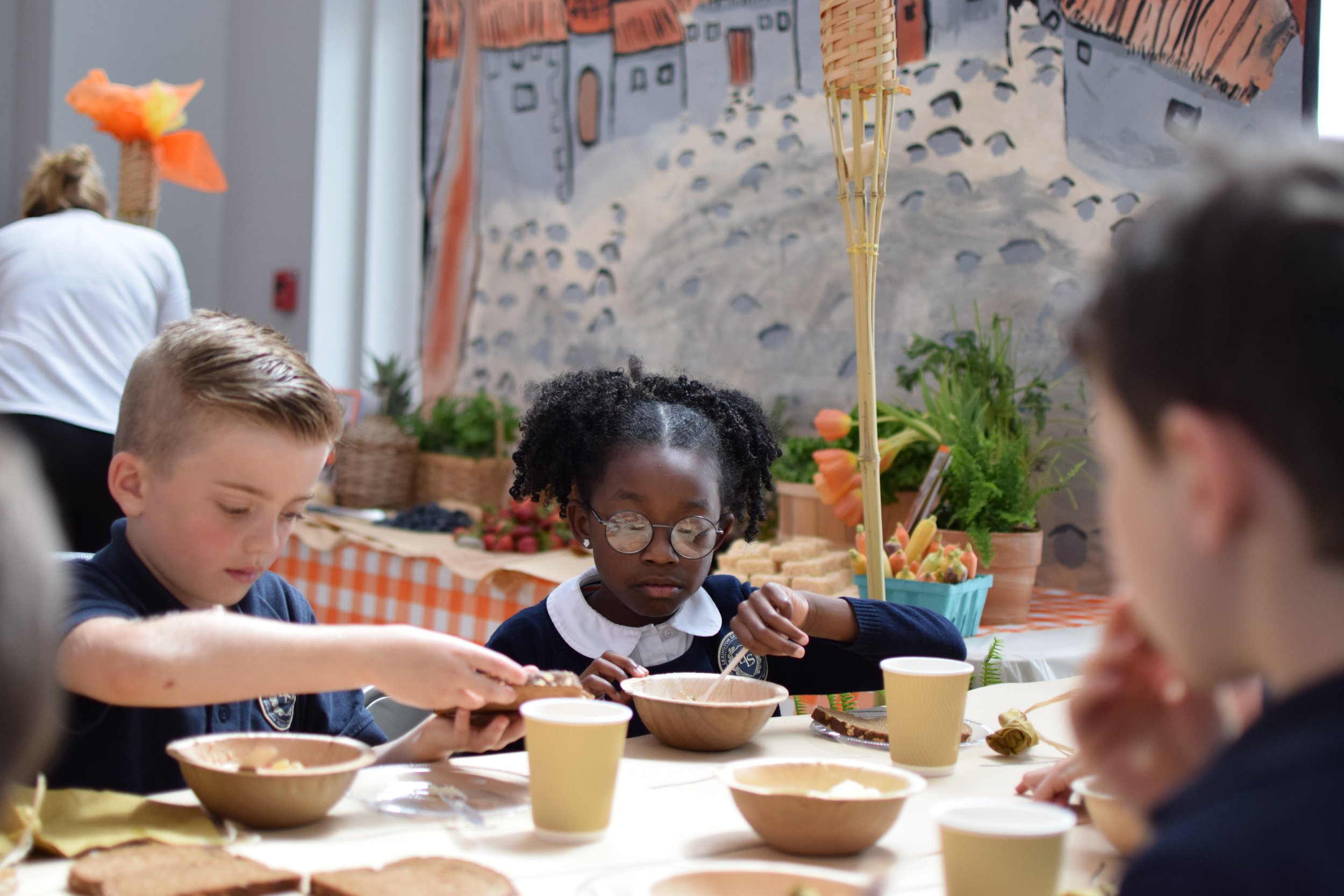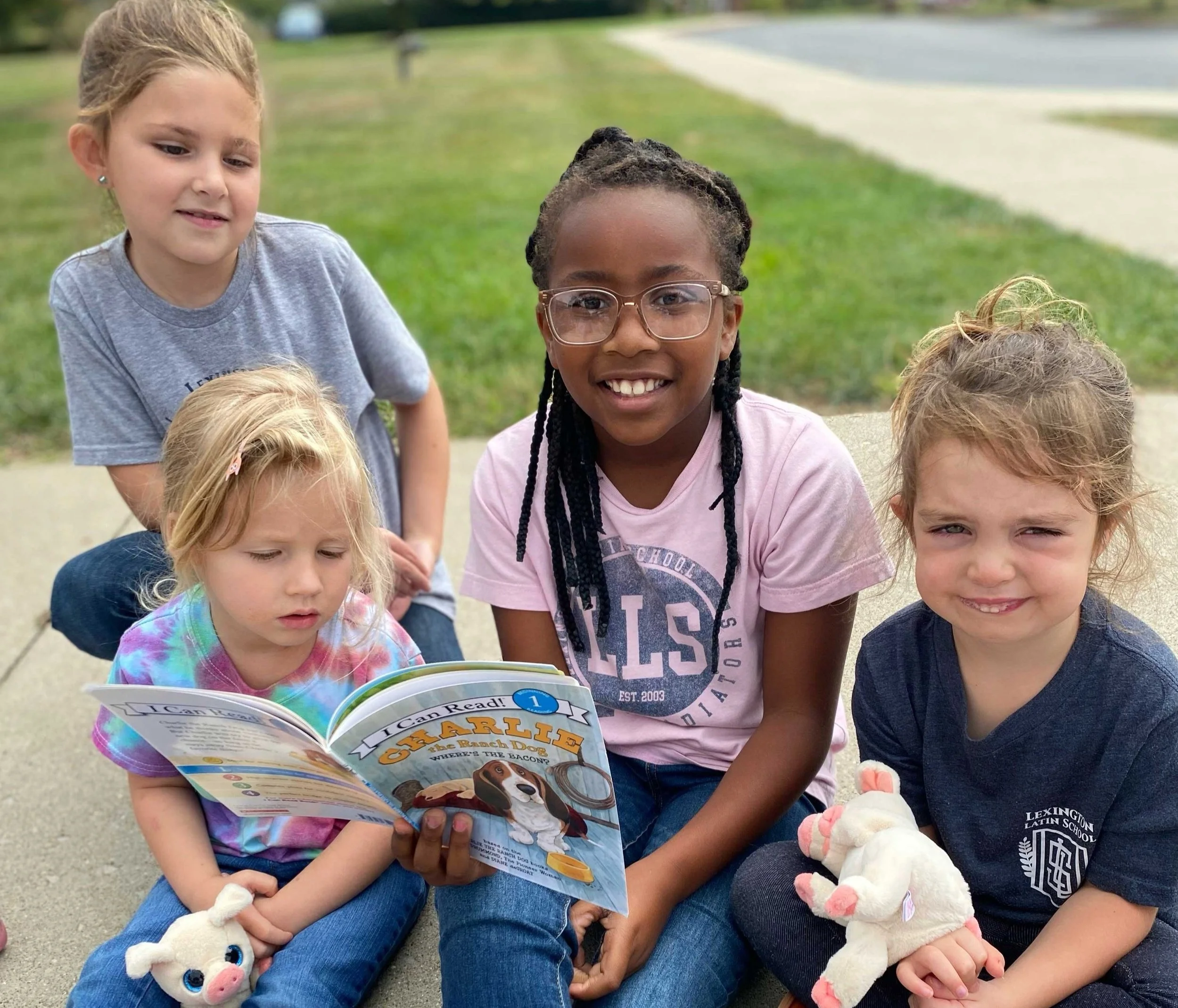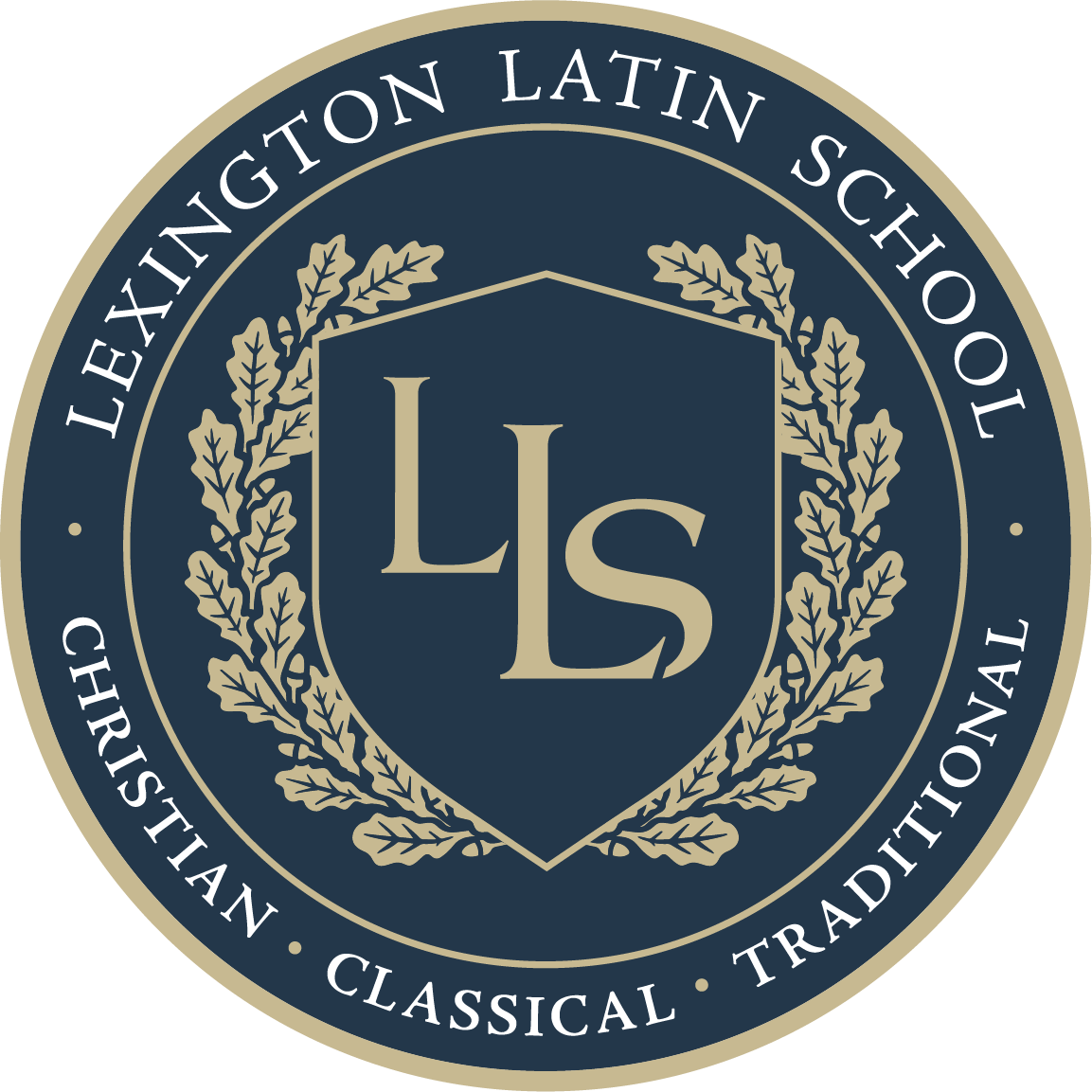
Primary School K - 2nd
In the Primary School, we lay the groundwork for lifelong learning by focusing on essential academic and social skills. Reading, writing, spelling, and arithmetic are the foundation upon which the tower of learning is built, and they are given the highest priority in K-2. The basic skills, work habits, and attitudes formed in the primary years are of critical importance.
Academic Overview
Primary School K - 2nd Courses
-
Phonics is the system of letter-sound association taught to children for the purposes of learning to read and spell. Phonics is most effective when taught systematically, thoroughly, intensively, and in a logical and time-tested sequence.
Students develop the visual memory for accurate spelling by a systematic study of phonics, word families, and spelling rules, and by a lifetime of seeing, reading, and writing words correctly.
A rich language experience, provided both at home and in school, is an important factor in reading success. Students memorize poems and Scripture and enjoy children’s classics read by teachers and parents during read-aloud time.
-
Copybook is an exercise consisting of copying sayings, maxims, Scripture, and poetry in the student’s best handwriting. Copybook is an important step in developing good penmanship, punctuation, and spelling. Habits of good penmanship are instilled early and required at every grade level by every teacher. The discipline of neat and legible handwriting is an aid to spelling and instills the value of accurate, careful work – an important academic skill that carries over into every aspect of learning.
Our teachers work with parents to help students form and maintain a proper pencil grip. Correct pencil grip reduces hand fatigue and as a consequence also reduces resistance to written work in general.
-
Mathematics is an exact language, one that is unrelenting and unforgiving. Students must overlearn basic math skills if they are to be successful in higher-level math classes.
Arithmetic is the art of counting and calculation. Like the Latin grammar, arithmetic is concrete, based on memorization, and is a small and finite subject. These characteristics make arithmetic appealing to the child’s mind; it is something that he can understand and achieve mastery over.
In the trivium model of learning, arithmetic is the focus of grades K–6. Next to the alphabet, arithmetic is the most useful tool students will ever possess. It should not be rushed over in a hurry to get to higher mathematics.
Immediate recall of addition and subtraction facts through 18 is the focus in primary school. Number formation, counting, time, calendar, measurement, and money are the initial skills of K-2.
-
K-2 students study globes and maps to learn continents, oceans, major countries, and basic geography terms. Second graders are introduced to states and capitals.
-
Our Read-Aloud Program consists of a set of thirty books, one set for each grade in K-2, one book for each week. These books provide a rich language experience for students, as each book is read aloud every day the class meets and is accompanied by oral questions and discussion. Students learn new and interesting words and delight in rhyme and word play. They learn about holidays, history, geography, science, and more. The read-aloud books, which are beautiful in both art and language, were chosen after extensive research and reading.
-
In K-2nd science, students learn about seasons, weather, and local flora and fauna. They take nature walks on our 20-acre Ashland Avenue campus to collect leaves, flowers, acorns, insects, and other treasures.
-
In Christian Studies students read or listen to Bible stories and memorize Scripture verses and prayers.
By the end of Grammar School (6th), students will have learned more than ninety of the most memorable and poetic verses of the King James Bible.
-
In 2nd grade, students begin their journey studying a classical language, Latin. Students are introduced to Latin vocabulary, sayings, and prayers. The study of Latin futher develops students' phonics and language skills.
-
K-2 students have weekly choir classes. In music appreciation, students are introduced to a well-known composer and piece of music weekly.
Students draw and color every day in their composition books, illustrating copybook verses, poems, and composition lessons. In art appreciation, primary students learn about an artist and study an art masterwork every week. Students enrolled in the three day program receive art instruction weekly.
-
Students have PE twice a week. PE provides 30 minutes of vigorous exercise as well as opportunities to play childhood games.
Our K-2 PE instructor works to develop basic motor and motion skills, such as running, skipping, running backwards, and flexibility, as well as sportsmanship and team play.
On days when students do not have PE, they have recess outside and in the gym.
Nurturing a Love for Reading
When your children are young, read alouds are an intentional way to introduce them to the joy of reading quality books. Reading aloud at all ages provides the benefits of a language-rich environment, ignites the imagination, teaches virtue, and deepens family bonds through a shared experience. It is natural to prioritize reading aloud when your children are young, however, we believe that the habit of reading aloud to your children throughout their years at home develops rhythms that will foster their continued growth as students, shape their love of good literature, and create a lifelong habit of reading.
Students love reading with their reading buddies on Spirit Days.







